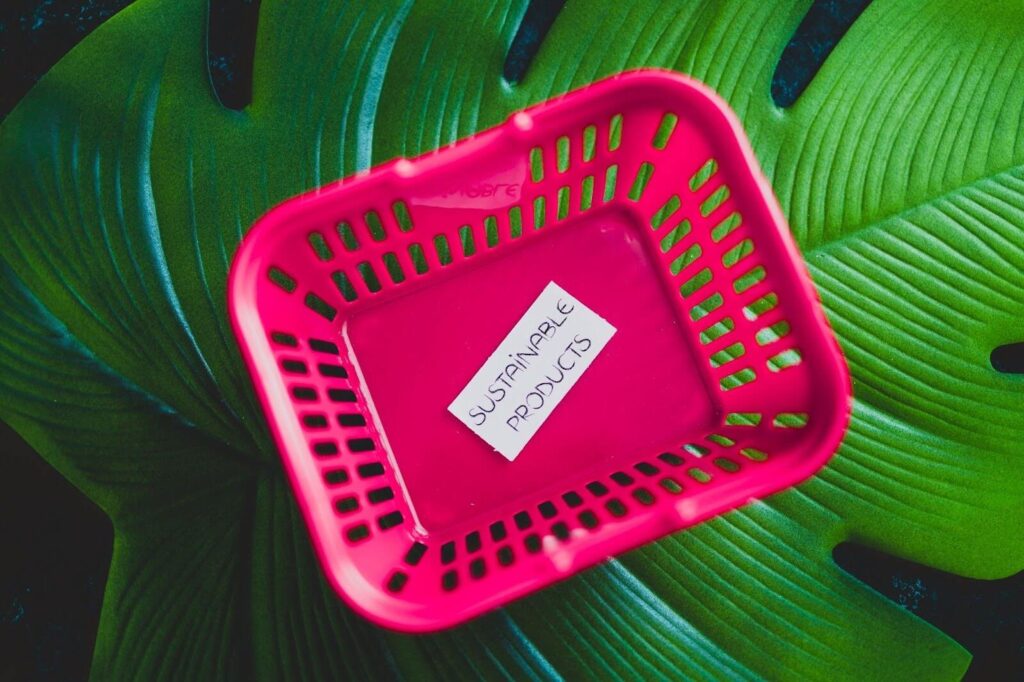Blog
How Sustainable Are Your Store’s Plastic Shopping Baskets?
As sustainability becomes a core focus in retail, businesses are increasingly reevaluating the materials and practices they use, especially regarding everyday items like shopping baskets. Case in point: the plastic shopping basket. While durable and convenient, plastic baskets raise important questions about environmental impact, material composition, and recyclability. Understanding how sustainable these baskets are is crucial for retailers looking to minimize their ecological footprint while maintaining quality and customer satisfaction.
Balancing Durability & Environmental Impact of Plastic Shopping Baskets
Material Analysis
Plastic shopping baskets are typically made from high-density polyethylene (HDPE) or polypropylene (PP), both of which are durable, lightweight, and resistant to wear and tear. These materials allow for long-lasting use in high-traffic environments like retail stores. However, the sustainability of these plastics depends largely on how they are sourced, manufactured, and disposed of. While HDPE and PP are technically recyclable, their recyclability often depends on local facilities and the specific recycling infrastructure available.
Environmental Impact
The ecological footprint of plastic store shopping baskets is tied to both the production and disposal processes. Plastics are derived from non-renewable fossil fuels, and their production generates significant greenhouse gas emissions. Once discarded, if not properly recycled, plastic baskets can take hundreds of years to decompose in landfills, contributing to pollution and environmental degradation. Additionally, if improperly managed, plastic baskets can end up in natural ecosystems, where they may break down into microplastics, harming wildlife and contaminating soil and water.
Alternatives to Plastic Baskets
To reduce the environmental impact of plastic shopping baskets, many retailers are exploring eco-friendly alternatives. One popular option is the use of recycled plastic baskets made from materials such as recycled HDPE or PP plastics. These baskets retain the durability of traditional plastic options while reducing the reliance on virgin materials, thereby lowering the carbon footprint associated with their production.
Another alternative is biodegradable or compostable baskets, which are made from materials like biodegradable plastics or plant-based resources such as cornstarch. These baskets break down more quickly in natural environments compared to traditional plastics, making them a more sustainable choice. However, they may not offer the same level of durability as standard plastic baskets, which could lead to more frequent replacements.
Retailers are also encouraging the use of reusable baskets and totes as a way to further reduce plastic waste. By incentivizing customers to bring their own reusable shopping bags or baskets, stores can significantly cut down on the demand for disposable plastic options. Some stores offer discounts or other incentives for customers who choose to use their own bags, promoting a culture of sustainability.
Retailer Responsibility
Retailers play a critical role in promoting sustainability through the choices they make regarding shopping baskets. By choosing a sustainable shopping basket made from recycled materials, ensuring proper recycling programs are in place, and encouraging customers to reuse baskets, stores can significantly reduce their environmental impact. Additionally, educating customers on the importance of sustainable practices, such as returning baskets or using eco-friendly alternatives, can foster a more eco-conscious shopping environment.
Recycled Materials Are Good L Corp’s Forte
The sustainability of the plastic shopping basket depends on several factors, including material composition, longevity, and how it is disposed of at the end of its life cycle. While traditional plastic baskets offer durability, their environmental impact cannot be ignored. By exploring alternatives such as recycled or biodegradable materials and implementing sustainable practices, you as a retailer can reduce your ecological footprint while maintaining the quality and convenience that customers expect.
Sustainable baskets are not only better for the environment but also enhance a store’s reputation, attracting eco-conscious customers and aligning with broader sustainability goals. Contact us today to learn more about the recycled materials we use in our shopping baskets.


Request a Quote
Get a boost to your impulse sales which ultimately leads to an overall improvement of your total sales. Don’t you want to increase sales? Of course you do!